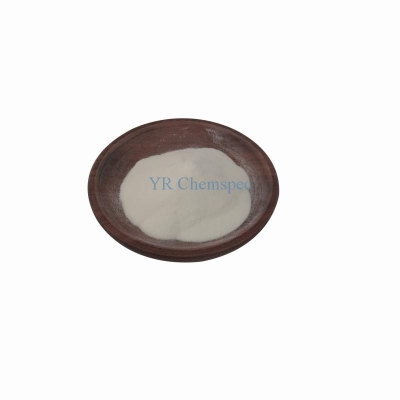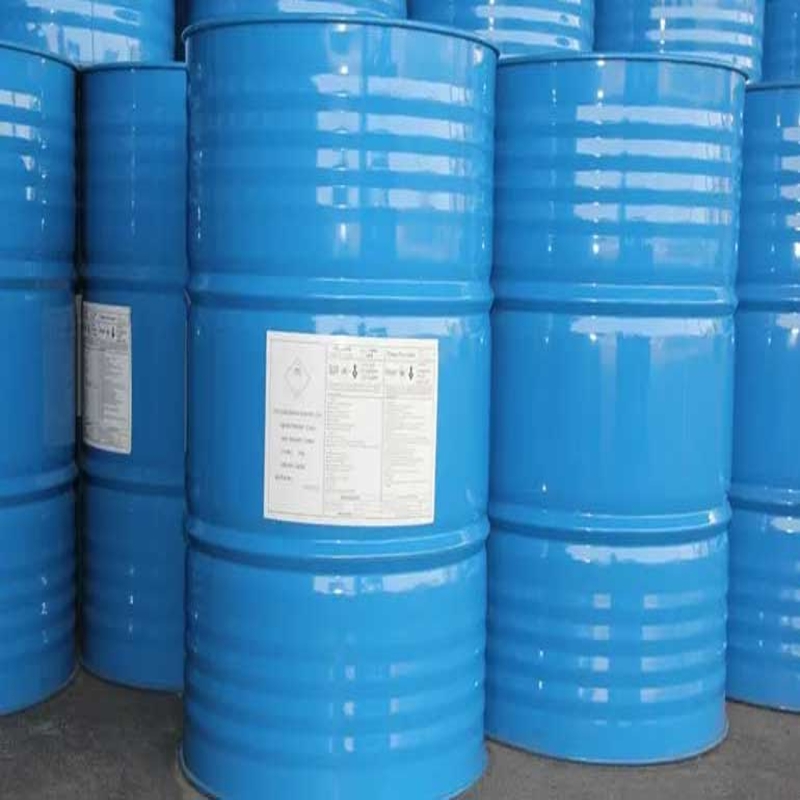-
Categories
-
Pharmaceutical Intermediates
-
Active Pharmaceutical Ingredients
-
Food Additives
- Industrial Coatings
- Agrochemicals
- Dyes and Pigments
- Surfactant
- Flavors and Fragrances
- Chemical Reagents
- Catalyst and Auxiliary
- Natural Products
- Inorganic Chemistry
-
Organic Chemistry
-
Biochemical Engineering
- Analytical Chemistry
-
Cosmetic Ingredient
- Water Treatment Chemical
-
Pharmaceutical Intermediates
Promotion
ECHEMI Mall
Wholesale
Weekly Price
Exhibition
News
-
Trade Service
At present, the trend of heavy and inferior crude oil in the world has been very obvious
.
According to statistics, at present, more than 70% of the remaining recoverable oil resources in the world are heavy resources, and the production of low-sulfur and light crude oil is constantly decreasing, while the output of sulfur-containing and heavy crude oil is increasing
year by year.
Many industry authorities also believe that the era of easy exploitation of conventional oil is coming to an end, and countries such as Canada and the United States have invested in the exploitation of ultra-heavy oil and oil sands, and even major oil-producing countries such as Saudi Arabia and Kuwait have joined the tide
of heavy crude oil development.
Most of China's oil resources are low-sulfur oil, but there is a shortage of resources, and most of the imports are high-sulfur, sulfur-containing and heavy crude oil
.
The heavy quality of crude oil resources makes refining and processing more difficult, and the depth and harshness of heavy oil processing are increased, which greatly promotes the development of
heavy oil processing technology.
As the second largest refining producer in China, PetroChina attaches great importance to the development and application of heavy oil processing technology in recent years, and has made good progress, providing effective technical support
for the rapid development of China's oil refining business.
1.
New technology of heavy oil processing
1.
High conversion heavy oil catalytic cracking catalyst In order to improve the conversion rate of heavy oil and improve product liquid receipt, PetroChina has developed LDO series heavy oil high conversion catalytic cracking catalyst
.
While ensuring the quality of gasoline, the conversion capacity of heavy oil can be increased by 1~2 percentage points, and the total liquid income can be increased by more than
1 percentage point.
In addition to being applied in 26 sets of domestic plants, LDO catalysts have been exported overseas, and are currently being promoted and applied at Chevron's American refinery and ExxonMobil's Australian refinery, of which the total liquid yield of LDO-75SL catalyst has increased by 3 percentage points
after application in a refinery in the United States.
2.
Propylene heavy oil catalytic cracking catalyst Under the development trend of refining technology to expand the function of catalytic cracking unit and increase the production of propylene chemical raw materials, PetroChina has developed LCC multi-production propylene catalyst
, which can improve propylene yield under the condition of ensuring the quality and yield of gasoline and diesel products, and has been successfully applied
in more than 10 sets of domestic plants 。 The application results of LCC-2 catalyst in the domestic 1.
8 million tons FCC plant showed that the propylene yield increased by 1.
5%, the total liquid yield increased by 0.
5%, and the research octane number (RON) increased by 1.
3.
3.
Two-stage riser catalytic cracking process technology
In order to improve the yield of gasoline and diesel, PetroChina has developed a new two-stage riser catalytic cracking process, which enables the raw materials to control the reaction depth through the segmented reaction, and achieves the goal of flexibly adjusting the product structure, improving the yield of
gasoline and diesel, and reducing the yield of dry gas and coke 。 The industrial test data on the 1 million ton plant of a domestic petrochemical company shows that the yield of gasoline and diesel is increased by 1.
5wt%, the yield of dry gas and coke can be reduced by 1.
5wt%, the cetane number of diesel is increased by 3~5, and the diesel-to-gas ratio is easy to adjust
.
This technology has been applied
in 11 sets of million-ton industrial plants in China.
Based on the two-stage riser catalytic cracking process, the highly selective propylene production process (TMP) developed by heavy oil catalytic cracking according to the demand for increasing propylene production can maximize the production of propylene
from residual oil raw materials.
It has the advantages of
low reaction temperature, short contact time, large agent-oil ratio and high catalyst fluidization density.
With Daqing vacuum residue oil as raw material, the total liquid harvest is basically unchanged, and the total yield of coke and dry gas does not exceed 15wt%; The propylene yield is not less than 20wt%; Gasoline octane rating is not less than 93
.
The process has achieved long-term operation in the 120,000-ton industrial demonstration plant of Daqing Refinery, and the comprehensive propylene yield exceeds 20wt%.
4.
Venezuelan superheavy oil residue oil hydrogen supply thermal cracking technology
Venezuelan superheavy oil is one of the most difficult heavy oil in the world to process, China will import a large amount of Venezuelan heavy oil in the future, PetroChina is building a joint venture with Venezuela to process Venezuelan heavy oil plant
.
PetroChina independently developed UHP hydrogen cracking technology (HDTC) to solve the problem
of inferior heavy oil modification and viscosity reduction.
HDTC technology is suitable for processing Venezuelan vacuum residue with a boiling point greater than 420 °C, and has successively achieved 400,000 tons of industrial tests and 1 million tons of industrial applications
.
The results showed that the quality of Venezuelan superheavy oil was reduced from API degree 7.
8, 50°C kinematic viscosity 38000mm2/s to API degree greater than 12, kinematic viscosity 150~200mm2/s, storage stability greater than 180 days, meeting the requirements of
long-distance pipe transportation, shipping and storage.
5.
Venezuelan superheavy oil residue oil delayed coking technology delayed coking is the most important heavy oil processing technology, and it is also an important means of
Venezuelan superheavy oil
modification and processing.
PetroChina has developed a complete set of technology packages with independent intellectual property rights
through the application of key technologies such as projectile coke suppression technology, self-produced hydrogen supply gas to improve liquid harvesting technology, heating furnace wall combustion to improve temperature field step-by-step counting, fractionation tower wax oil circulation washing, automatic tower bottom valve and high-efficiency heating furnace.
This technology has completed the first domestic 100% Venezuelan superheavy oil residue delayed coking industrial test on a 1 million ton industrial plant, achieving safe and smooth operation
.
Second, the development direction of heavy oil processing technology
China's refining industry is mainly to meet domestic oil demand
.
In 2011, China's apparent crude oil consumption reached 455 million tons, of which net imports reached 251 million tons, and the dependence of crude oil on foreign countries was as high as 55.
2%.
Crude oil imports are mainly from Middle Eastern and African countries
such as Saudi Arabia, Angola and Iran.
It is estimated that by 2015, China's crude oil demand will reach 530 million tons, and its dependence on foreign countries will exceed 60%.
Rising demand for crude oil and rising dependence on foreign countries have forced domestic refineries to process more resource-rich and low-priced high-sulfur, acid-containing heavy crudes
.
At the same time, among the undeveloped overseas resources, the proportion of Venezuelan super-heavy oil and Canadian oil sands asphalt is gradually increasing and the reserves are huge, and these overseas heavy and inferior crude oil resources will become an important source of imports for
Chinese oil for a long time to come.
PetroChina's current refining capacity reaches 159 million tons, of which heavy oil and heavy oil processing capacity is about 20 million tons, which is expected to reach 240 million tons
by 2015.
Among them, the new crude oil processing capacity will mainly process inferior and heavy crude oil, such as Venezuelan super heavy oil, China's Liaohe heavy oil, etc
.
The nature of Venezuelan heavy oil and Liaohe heavy oil in the new capacity is very poor, with API degrees of 8.
6 and 9.
5, nitrogen content of 78ppm and 117ppm respectively, and sulfur content of Venezuelan heavy oil as high as 4%, which are typical refractory crude oil
.
PetroChina's 20 million ton refining project in Jieyang, Guangdong, a joint venture between PetroChina and Venezuela, officially started construction on April 27, 2012, and will process all the crude oil from Venezuela's ultra-heavy oil
.
In view of the future situation of heavy oil processing, PetroChina's heavy oil processing technology will focus on catalytic cracking, delayed coking, residue hydrogenation and other fields
.
On the basis of consolidating the advantages of heavy oil catalysts and multi-production olefin process technology, heavy oil catalytic cracking technology will accelerate the upgrading of catalysts and process technologies, improve the octane number of gasoline and improve diesel yield; Increase the amount of raw material processed, reduce coke and hydrogen yields, and increase the production of low-carbon olefins
.
At the same time, we will develop
additives to reduce the emission of "three wastes".
The delayed coking technology will mainly focus on the improvement of the scale of the plant and the large-scale coke tower, the improvement of the flexibility of the processing raw materials and the improvement of the liquid product yield
.
Residue hydrogenation technology will be the mainstream technology for heavy oil modification and processing in the future, among which the development direction of fixed-bed residual oil hydrogenation technology is to develop new catalysts, improve device processing capacity and reduce hydrogen consumption
.
The development direction of suspended bed residue hydrogenation technology is: to solve the problem of engineering amplification and develop high-efficiency reactors; Develop high-efficiency catalysts to improve catalyst dispersion; Reduce operating pressure, reduce hydrogen consumption and investigate effective treatment of
hydrogenation tail oil.
In short, with the increasing trend of heavy and inferior global and domestic crude oil, especially the proportion of crude oil resources such as Venezuelan superheavy oil, Canadian oil sands asphalt and shale oil will further increase, heavy oil processing technology will play a greater role
in the process of refining industry coping with crude oil inferiorization and heavy quality, increasing the production of refined oil and chemical raw materials.







